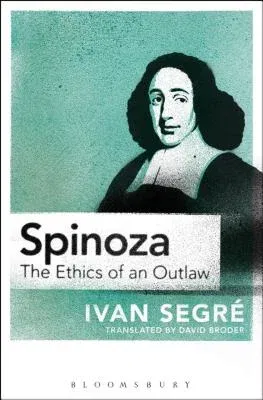Ivan Segré
(Author)Spinoza: The Ethics of an OutlawPaperback, 9 February 2017

Qty
1
Turbo
Ships in 2 - 3 days
In Stock
Free Delivery
Cash on Delivery
15 Days
Free Returns
Secure Checkout

Print Length
200 pages
Language
English
Publisher
Bloomsbury Academic
Date Published
9 Feb 2017
ISBN-10
1350016616
ISBN-13
9781350016613
Description
Product Details
Author:
Book Format:
Paperback
Country of Origin:
US
Date Published:
9 February 2017
Dimensions:
19.81 x
12.7 x
1.52 cm
ISBN-10:
1350016616
ISBN-13:
9781350016613
Language:
English
Location:
New York
Pages:
200
Publisher:
Weight:
226.8 gm